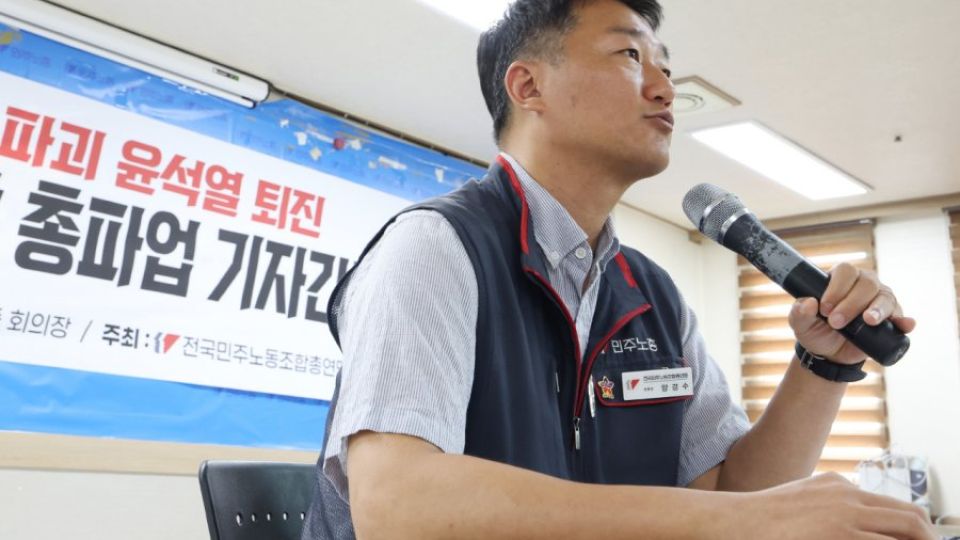July 3, 2023
SEOUL – The Korean Confederation of Trade Unions, the more militant of the nation’s two largest umbrella labor organizations, has announced two weeks of strikes starting Monday to call for the resignation of President Yoon Suk Yeol.
The strikes, expected to involve a total 400,000 to 500,000 workers, comes in protest of Yoon’s proposed labor reform measures and as a broader pushback against perceived anti-union policies.
On Monday, approximately 3,000 workers, predominantly courier and home appliance repair personnel, will begin the strike, ceasing work to hold a rally at Gwanghwamun Square in the heart of Seoul. Following this gathering, additional members of the KCTU will join.
On Wednesday, large-scale rallies are planned across the country, including in the metropolitan cities of Seoul, Daegu, Busan, Gwangju and the southern island of Jeju. The following day, some service workers will hold a rally in front of Sungnyemun in Seoul. On July 8, public officials will hold a rally in Yeouido, Seoul.
On July 12, metal workers will go on a general strike. On July 13, health and medical workers and office workers will gather in Seoul to stage a rally. On July 15, a rally will be held calling for Yoon’s resignation.
Candlelight rallies will be held throughout the country on the evenings of July 4, 7, 11, and 14 to urge the president’s resignation.
The KCTU estimates that the rallies from July 3 to 15 will draw a total of 400,000 to 500,000 workers.
The nationwide protests come on the back of growing opposition to Yoon’s proposed labor reform measures. Yoon and the KCTU have been at loggerheads over various reform plans put forward by the government.
The Yoon administration had proposed a plan to permit a working week of up to 69 hours, while maintaining an average maximum week below 52 hours. However, after strong opposition from not only labor unions but also the country’s young people, the government backed away from the plan.
Yoon has taken a tough stance on illegal acts committed by labor unions as a wider part of his labor union reforms. Yoon has demanded trade unions boost their financial transparency while denouncing some construction unions’ practices of receiving kickbacks and some labor unions’ political campaigns.
The Yoon administration is now pursuing a plan to restrict rallies at night or during commuting hours, as well as those by organizations which have a record of illegal demonstrations.
“We are going on a general strike because we need to stop regressive labor reforms. The KCTU declares an all-out struggle against the Yoon government, and this 2-week strike is the first step,” KCTU Chairman Yang Kyung-soo said at a press conference.
The government plans to take strict measures against illegal acts during protests. Yoon Hee-keun, the National Police Agency Commissioner General, said, “We will guarantee the right to stage pre-reported rallies, but we will manage those outside the scope of the report as illegal acts.”
The National Police Agency plans to mobilize up to 9,300 police a day to respond to those rallies.


